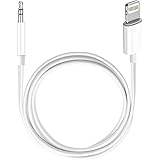Table of Contents
Introduction
Backlinks play a crucial role in determining the search engine optimization (SEO) performance of a website. They serve as a vote of confidence from other websites, indicating their trust and authority. Search engines, such as Google, consider backlinks as a major ranking factor, as they are seen as endorsements for the content’s quality and relevance.
In our previous article, On-Page SEO: Proven Strategies to Skyrocket Your Website’s Ranking (2024), we tackled On-Page SEO as one of the 6 Easy SEO Techniques to Drive Traffic to Your Website.
In this article, we delve into the significance of backlinks in SEO, exploring how they can positively impact website visibility, organic traffic, and overall search rankings. By the end of the article, you will have gained a comprehensive understanding of the role backlinks play in SEO. You will also have discovered effective strategies to build a strong backlink profile for your website.
The Importance of Backlinks
Definition
Backlinks, also known as inbound links or incoming links, are hyperlinks on other websites that direct users to your website. These links play a crucial role in search engine optimization (SEO) as they act as endorsements from other sites, indicating that your content is valuable and trustworthy.
The Role of Backlinking in SEO
Backlinks are one of the key factors search engines use to determine the credibility and authority of a website. When a website has a high number of quality inbound links, it signals to search engines that the site is popular and relevant. Consequently, search engines are more likely to rank that website higher in search results, leading to increased visibility and organic traffic.
These incoming links not only bring direct referral traffic from other sites but also enhance the overall SEO performance of a website. They contribute to improving the website’s domain authority, which measures how trustworthy and authoritative a website is perceived to be. The more high-quality inbound links a website has, the higher its domain authority, increasing its chances of ranking well in search results.
Types
There are several types of backlinking, each with its level of impact on SEO performance:
- Natural Editorial Links.
- These are links that are voluntarily given by other website owners or bloggers who find your content valuable and relevant.
- Natural editorial links are considered the most valuable type of backlinks as they are earned based on the quality and merit of your content.
- Guest Blogging Links.
- Guest blogging involves writing and publishing articles on other websites in exchange for an inbound link to your website.
- This type of backlinking can be effective if the guest blog is published on a reputable and relevant website within your industry.
- Social Media Links.
- While social media links may not directly impact SEO rankings, they play a significant role in increasing brand visibility and driving traffic to your website.
- When your content is shared and linked to on social media platforms, it can attract attention from other website owners who may then link to your content on their sites.
- Forum and Comment Links.
- Participating in online forums and leaving insightful comments on relevant blog posts can lead to incoming links.
- However, it is important to ensure that these links are natural and relevant to the discussion rather than spammy or self-promotional.
- Directory Links.
- Directory links involve submitting your website to online directories or listing websites.
- While directory links used to be a popular SEO tactic, their impact on rankings has diminished over time.
- It is essential to choose reputable and relevant directories if you decide to pursue this type of backlinking.
In short, backlinking is an integral part of SEO performance. It serves as an endorsement of your website’s credibility and authority, helping to improve search engine rankings and drive organic traffic. By understanding the importance of backlinking and utilizing various types of links effectively, you can enhance your website’s SEO performance and increase its visibility online.
Factors Affecting Backlink Quality
Relevance of the Linking Site
One of the key factors affecting the quality of links is the relevance of the linking site. When a website that is related to your industry or niche links back to your site, search engines perceive it as a strong signal of authority and relevance.
For example, if you have a blog about fitness and a reputable fitness magazine includes a link to your blog in one of its articles, search engines will consider it as a valuable backlink. On the other hand, if a website that is unrelated to your industry or has low-quality content links to your site, it can negatively impact your SEO performance.
Authority and Trustworthiness
Another crucial factor in determining backlink quality is the authority and trustworthiness of the linking site. Search engines consider websites with high domain authority and trustworthiness as reliable sources of information. When such sites link to your content, it boosts your credibility in the eyes of search engines.
Acquiring inbound links from reputable sources can significantly improve your SEO performance. However, it’s important to note that search engines also evaluate the quality of the entire linking domain, so it’s not just about individual backlinks but about the overall authority of the site.
Anchor Text and Context
The anchor text used in the backlink and its surrounding context also plays a role in determining the quality of the link. Anchor text refers to the clickable text that appears as a hyperlink. It provides search engines with context about the content on the linked page.
Using descriptive and relevant anchor text helps search engines understand the topic and relevance of the linked content. For example, if you have a web design blog and a backlink uses anchor text like “best web design practices,” it indicates to search engines that the linked content is related to web design. However, over-optimized or spammy anchor text can hurt your SEO performance.
In conclusion, the quality of incoming links is influenced by several factors. The relevance of the linking site, the authority and trustworthiness of the domain, and the anchor text and contextual relevance all contribute to the overall quality of a backlink. By focusing on acquiring high-quality backlinks that meet these criteria, you can improve your SEO performance and increase your website’s visibility in search engine results.
Measuring the Impact of Backlinks
Domain Authority and Page Authority

In the world of search engine optimization (SEO), one of the key metrics used to measure the impact of incoming links is domain authority and page authority.
- Domain Authority
- This refers to the overall strength and credibility of a website.
- Page Authority
- This focuses on the authority of a specific page within that domain.
When it comes to inbound links, having high domain authority and page authority is crucial. Backlinks from websites with high domain authority and page authority carry more weight in improving your website’s SEO performance. These authoritative incoming links signal to search engines that your website is trustworthy and reliable, leading to higher rankings in search engine results pages (SERPs).
To measure the impact of links on your SEO performance, it’s essential to track the domain authority and page authority of the websites linking to your site. Tools like Moz’s Open Site Explorer or Ahrefs’ Site Explorer can provide valuable insights into the authority of the websites linking to your site. Monitoring changes in domain authority and page authority over time can help you understand the impact of these inbound links on your overall SEO performance.
Referring Domains and Backlink Quantity
Another important aspect to consider when measuring the impact of backlinks is the number of referring domains and the number of inbound links pointing to your website. Referring domains refer to the unique websites that are backlinking to your site, while backlink quantity indicates the total number of backlinks you have acquired.
While it’s true that these incoming links from a variety of referring domains can positively impact your SEO performance, it’s important to note that quality should always take precedence over quantity. Backlinking from a few high-quality referring domains is generally more beneficial than having numerous low-quality links.
Search engines consider backlink quantity as a vote of confidence and popularity for your website. However, they also assess the quality and relevance of those links. It’s crucial to focus on building a diverse and natural backlink profile, rather than simply chasing after a high number of sites backlinking to your site. This approach will not only improve your SEO performance but also protect your website from potential penalties due to spammy, low-quality, or fishy backlinks.
Link Diversity and Natural Link Profile
Link diversity plays a significant role in determining the impact of incoming links on SEO performance. Having a diverse range of backlinks from various sources and domains shows search engines that your website is relevant and trustworthy across different contexts.
Having a natural link profile means that your inbound links are acquired organically, without any manipulative tactics or artificial strategies. Search engines are increasingly adept at identifying unnatural link-building practices, and websites engaging in such practices can face penalties that severely impact their SEO performance.
To create a natural link profile, focus on acquiring links from a variety of sources such as reputable websites, industry-specific blogs, social media platforms, and online directories. Building relationships with influencers and thought leaders in your industry can also help in obtaining high-quality backlinks from relevant sources.
Remember, it’s not just about the number of links you acquire, but also about the quality, relevance, and diversity of those backlinks. By measuring the impact of backlinks through domain authority, page authority, referring domains, backlink quantity, link diversity, and natural link profiles, you can effectively enhance your SEO performance and improve your website’s visibility in search engine rankings.
Effective Strategies for Building Backlinks
Guest Blogging and Influencer Outreach

Guest blogging and influencer outreach are very powerful strategies for building incoming links and increasing your website’s SEO performance. By collaborating with other industry experts and influencers, you can expand your reach and attract a wider audience.
Guest Blogging
When it comes to guest blogging, it is quite important to first identify reputable websites within your niche that accept guest posts. Then craft high-quality, informative, and relevant content that provides value to their readers. Ensure that your guest post includes a link back to your website, as this will help drive traffic and improve your SEO ranking.
Follow the steps below to get the most out of guest blogging.
1. Identifying Opportunities:
- Research and identify websites within your niche that accept guest posts. Look for sites with high domain authority to maximize the impact of your backlink.
- Use tools like BuzzSumo or Ahrefs to find popular content in your niche and the sites that are hosting such content.
2. Pitching Your Content:
- Craft a compelling pitch that outlines the value your guest post will bring to their audience.
- Personalize your outreach emails.
- Show that you’re familiar with their content and audience.
3. Writing Quality Content:
- Ensure your guest post is informative, engaging, and aligns with the host site’s content style and audience.
- Include natural, contextual incoming links to your site.
- Avoid over-promotional or irrelevant links.
4. Building Relationships:
- Guest blogging should be more about building relationships than just acquiring links.
- Engage with the host site’s audience in the comments section of your guest post and on social media.
Influencer Outreach
Influencer outreach involves reaching out to influential individuals in your industry who have a large following and a strong online presence. Collaborate with them on content creation or request them to share your content with their audience. This can lead to valuable inbound links and increased visibility for your website.
1. Identifying Influencers:
- Look for influencers in your niche with an engaged audience. Tools like Klear, BuzzSumo, or Influencity can help identify relevant influencers.
- Consider micro-influencers as they often have highly engaged audiences.
2. Crafting Your Outreach Strategy:
- Personalize your outreach messages. Explain why a collaboration would be beneficial for both parties.
- Offer something of value in return, such as sharing their content with your audience or providing exclusive content.
3. Collaborative Content Creation:
- Collaborate on content that benefits both parties, like co-authored blog posts, interviews, or joint webinars.
- Ensure that any content created is authentic and provides value to both audiences.
4. Leveraging Influencer Networks:
- Once you establish a relationship with an influencer, explore opportunities to get introduced to other influencers in their network.
- Engage regularly with their content to maintain and strengthen the relationship.
Best Practices for Both Strategies
1. Focus on Quality Over Quantity:
- It’s better to have a few high-quality guest posts and influencer collaborations than many low-impact ones.
2. Monitor and Measure Impact:
- Use analytics tools to track the traffic and engagement resulting from your guest posts and influencer collaborations.
- Adjust your strategies based on what works best in terms of engagement and backlink quality.
3. Maintain Ethical Standards:
- Ensure that all inbound links acquired through these methods adhere to SEO best practices and avoid any strategies that could be considered manipulative by search engines.
4. Long-Term Relationship Building:
- View guest blogging and influencer outreach as long-term relationship-building strategies rather than one-off opportunities.
By effectively implementing these strategies, you can significantly enhance your website’s backlink profile, improve its SEO performance, and establish valuable connections within your industry.
Social Media and Content Marketing
Social media platforms provide an excellent opportunity to build inbound links and enhance your SEO performance. Share your content across various social media channels to increase its visibility and encourage others to link back to it.
Social Media

1. Platform Selection:
- Identify which social media platforms are most frequented by your target audience. Each platform has its unique audience and content style (e.g., LinkedIn for professionals, Instagram for visual content).
- Focus your efforts on a few key platforms for better engagement rather than spreading too thin across many.
2. Content Sharing and Engagement:
- Regularly share your content, including blog posts, infographics, and videos, on your chosen social media platforms.
- Encourage engagement by asking questions, running polls, or starting discussions related to your content.
3. Building a Community:
- Foster a community around your brand by actively engaging with your followers, responding to comments, and participating in relevant conversations.
- Create and share content that resonates with your community, encouraging them to share it further.
4. Leveraging Hashtags and Trends:
- Utilize relevant hashtags to increase the visibility of your posts.
- Participate in trending topics or discussions to gain more exposure and potential backlinks.
Engage with your followers and industry peers by actively participating in discussions and sharing valuable insights. By establishing yourself as an authority in your field, you can attract more attention and potentially gain backlinks from reputable sources.
Content marketing is another effective strategy for building backlinks. Create high-quality and engaging content that resonates with your target audience. This can include blog posts, infographics, videos, or podcasts. By producing valuable content, you increase the likelihood of others linking back to it, thereby boosting your website’s SEO performance.
Content Marketing

1. High-Quality Content Creation:
- Develop content that is not only informative but also engaging and unique. This can include well-researched articles, interactive infographics, and compelling videos.
- Ensure your content answers common questions in your niche or provides new insights.
2. Content Promotion:
- Promote your content through various channels, including email newsletters, social media, and industry forums.
- Consider paid promotion to boost the reach of your most valuable content.
3. Collaborations and Guest Contributions:
- Collaborate with other content creators or websites for guest posts or joint content projects.
- These collaborations can lead to natural backlink opportunities.
4. SEO Optimization:
- Optimize your content for search engines with relevant keywords, meta descriptions, and engaging titles.
- Ensure your content is easy to read and navigate, with a clear Call-to-Action.
Link Reclamation and Broken Link Building
Link reclamation and broken link building are lesser-known but highly effective strategies for building backlinks.
Link Reclamation
Link reclamation involves identifying mentions of your brand or website that do not include a link. Reach out to the respective website owners or authors and kindly request them to add a link to your website. This can help you reclaim missed opportunities for backlinks and improve your SEO performance.
1. Monitoring Brand Mentions:
- Use tools like Google Alerts, Mention, or BuzzSumo to track mentions of your brand or website across the web.
- Identify mentions that don’t include a link to your website.
2. Outreach for Link Addition:
- Reach out to the authors or webmasters of these sites, thanking them for the mention and politely asking if they would add a link to your site.
- Provide them with the exact URL you want them to link to, making it as easy as possible for them.
Broken Link Building
Broken link building entails finding broken links on other websites within your niche. Contact the website owners or authors and inform them about the broken link.
Suggest replacing the broken link with a relevant link to your content. This mutually beneficial approach helps the website owner fix broken links while providing you with a valuable backlink.
1. Identifying Broken Links:
- Use tools like Ahrefs or Screaming Frog to find broken links on websites in your niche.
- Look for pages that have content similar to what you’ve created or can create.
2. Creating or Updating Content:
- If you don’t already have content that fits the broken link, create it. Ensure it provides value and is relevant to the original link’s context.
- If you already have similar content, consider updating it to make it the best possible replacement for the broken link.
3. Outreach for Link Replacement:
- Contact the website owner or webmaster, informing them about the broken link and suggesting your content as a replacement.
- Be helpful and courteous in your communication, focusing on the benefit to their readers or audience.
Best Practices for Both Strategies
1. Consistency and Quality:
- Consistently produce and share high-quality content. This builds credibility and increases the likelihood of organic backlinks.
- Avoid aggressive or spammy tactics in both social media engagement and outreach for link reclamation or replacement.
2. Relationship Building:
- Focus on building lasting relationships with other webmasters, content creators, and your audience.
- Genuine relationships can lead to more organic and high-quality backlink opportunities.
3. Tracking and Analysis:
- Regularly track the performance of your content and backlinks. Use analytics to understand what types of content and outreach strategies are most effective.
- Adjust your strategies based on data-driven insights.
By implementing these expanded strategies in social media, content marketing, link reclamation, and broken link building, you can effectively enhance your website’s backlink profile and SEO performance, while also building valuable relationships and a strong online presence.
In conclusion, implementing these effective strategies for building backlinks can significantly impact your website’s SEO performance. By leveraging guest blogging and influencer outreach, social media and content marketing, as well as link reclamation and broken link building, you can enhance your online visibility, attract more traffic, and improve your search engine rankings.
Avoiding Backlink Pitfalls
Backlinking plays a crucial role in enhancing the search engine optimization (SEO) performance of a website. However, it is important to be cautious while building links to avoid certain pitfalls that can negatively impact your website’s ranking and reputation. In this article, we will discuss some of the common pitfalls associated with backlinks and how to avoid them.
Low-Quality and Spammy Links
One of the biggest pitfalls to avoid when it comes to backlinks is obtaining low-quality and spammy links. These links come from websites that have poor reputations, lack relevant content, or engage in black hat SEO techniques. Such backlinks can harm your website’s credibility and even lead to penalties from search engines.
To steer clear of low-quality and spammy backlinks, it is essential to focus on building links from reputable and authoritative websites. Conduct thorough research to identify websites that are relevant to your niche and have a strong online presence. Engage in outreach efforts to establish relationships with these websites and obtain high-quality backlinks that will positively impact your SEO performance.
Paid Links and Link Farms
Another pitfall to avoid is the temptation of purchasing links or participating in link farms. Paid links violate search engine guidelines and can result in severe penalties. Link farms, on the other hand, are networks of websites that exist solely to exchange links, without providing any valuable content or relevance.
Instead of resorting to paid links or link farms, focus on organic link-building strategies. Create high-quality, informative, and engaging content that naturally attracts links from other websites. Guest blogging, influencer outreach, and social media promotion are some effective techniques to earn organic backlinks that will enhance your SEO performance in the long run.
Over-Optimization and Unnatural Link Building
Over-optimization refers to the excessive use of keywords or anchor texts in incoming links, which can be seen as manipulative by search engines. This is when your SEO efforts get to the point where they hurt the quality of your site.
Unnatural link-building practices that should be avoided at all costs. This is when link-building involves acquiring a large number of backlinks within a short period, often from unrelated or irrelevant websites.
To avoid over-optimization, focus on diversifying your anchor texts and using them naturally within the context of your content. Aim for a balanced and varied distribution of keywords to maintain a natural link profile. Additionally, ensure that your inbound links come from websites that are relevant to your industry or niche, as this will enhance the credibility and authority of your website.
In conclusion, while backlinks are essential for SEO performance, it is crucial to avoid certain pitfalls that can harm your website’s ranking and reputation. By staying away from low-quality and spammy backlinks, paid links, and link farms, as well as over-optimization and unnatural link building, you can build a strong and organic backlink profile that will positively impact your SEO performance.
The impact of backlinks on SEO performance cannot be overstated. They serve as a strong signal to search engines, indicating the credibility and relevance of a website. They play a crucial role in improving search engine rankings and attracting organic traffic.
High-quality links from authoritative sources can significantly boost a website’s visibility and domain authority. However, it is important to note that the quality and relevance of incoming links matter more than the quantity. Building a diverse and natural backlink profile, along with producing high-quality content, remains essential for long-term SEO success. As search engines evolve, the importance of inbound links in SEO will likely continue to be a key factor in determining a website’s success in the ever-competitive online landscape.
Backlinks Frequently Asked Questions (FAQs)
What are backlinks and why are they important for SEO?
These are links from other websites that lead to your website. They are crucial for SEO because they act as a vote of confidence from one site to another, indicating to search engines that your content is valuable and trustworthy, which can improve your search engine rankings.
How do I get high-quality incoming links?
High-quality inbound links can be obtained through various methods such as guest blogging on reputable sites, influencer outreach, creating shareable content, participating in relevant online communities, and using broken link-building strategies. Focus on building relationships and providing value to ensure the links are beneficial.
Can social media help in building links?
While social media links themselves are typically nofollow and don’t directly contribute to SEO, they can indirectly help by increasing the visibility of your content. This increased exposure can lead to more natural inbound links from other websites.
What is the difference between dofollow and nofollow backlinks?
Dofollow incoming links pass along what is known as “link equity” and contribute to the link-receiving site’s search engine rankings. Nofollow links, on the other hand, do not pass on link equity and are typically used when linking to an unverified source or in sponsored content.
How many inbound links do I need to rank higher?
There’s no specific number of links required to rank higher as it depends on the quality of the links, the competitiveness of your keywords, and the authority of your website. Focus on obtaining high-quality backlinks rather than just increasing the quantity.
Are links from directories and forums valuable?
The value of links from directories and forums has decreased over time. However, if these inbound links are from high-quality, relevant directories or active, authoritative forums, they can still be valuable.
What is anchor text and why is it important?
Anchor text is the visible, clickable text in a hyperlink. It’s important because it provides context to both users and search engines about the content of the link’s destination. Using relevant and varied anchor text can improve the effectiveness of your links.
Can I buy backlinks to improve my SEO?
Buying links is against Google’s Webmaster Guidelines and can result in penalties. It’s recommended to focus on earning links through high-quality content and legitimate SEO strategies.
How does link diversity affect SEO?
Link diversity refers to having inbound links from a variety of sources, types, and domains. It’s beneficial for SEO as it makes your backlink profile appear more natural and less manipulative to search engines
How can I measure the impact of my incoming links?
You can measure the impact of your links using SEO tools like Moz’s Open Site Explorer, Ahrefs, or Google Search Console. These tools can help track the number of links, the quality of linking domains, and changes in your website’s search engine rankings.




